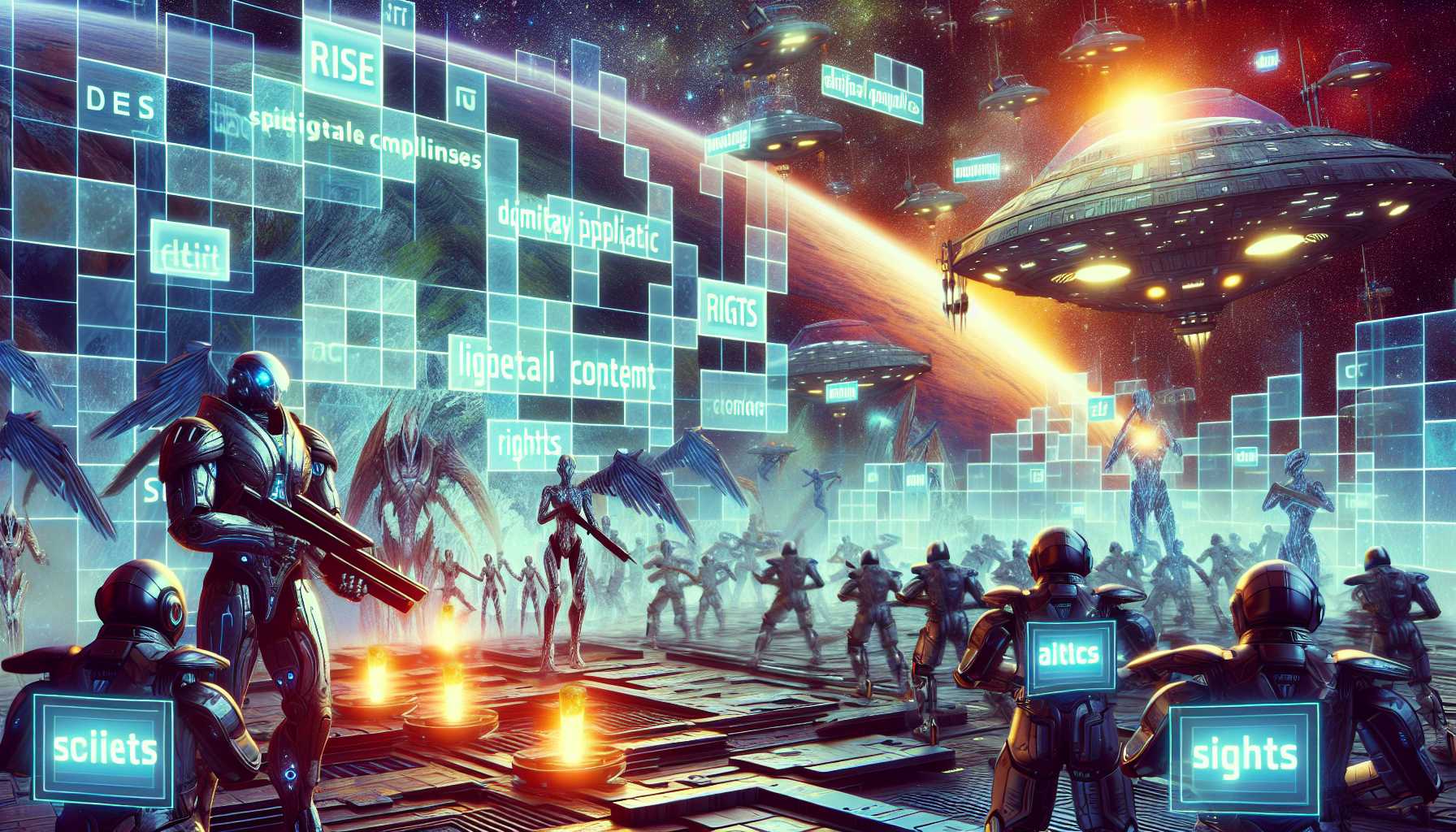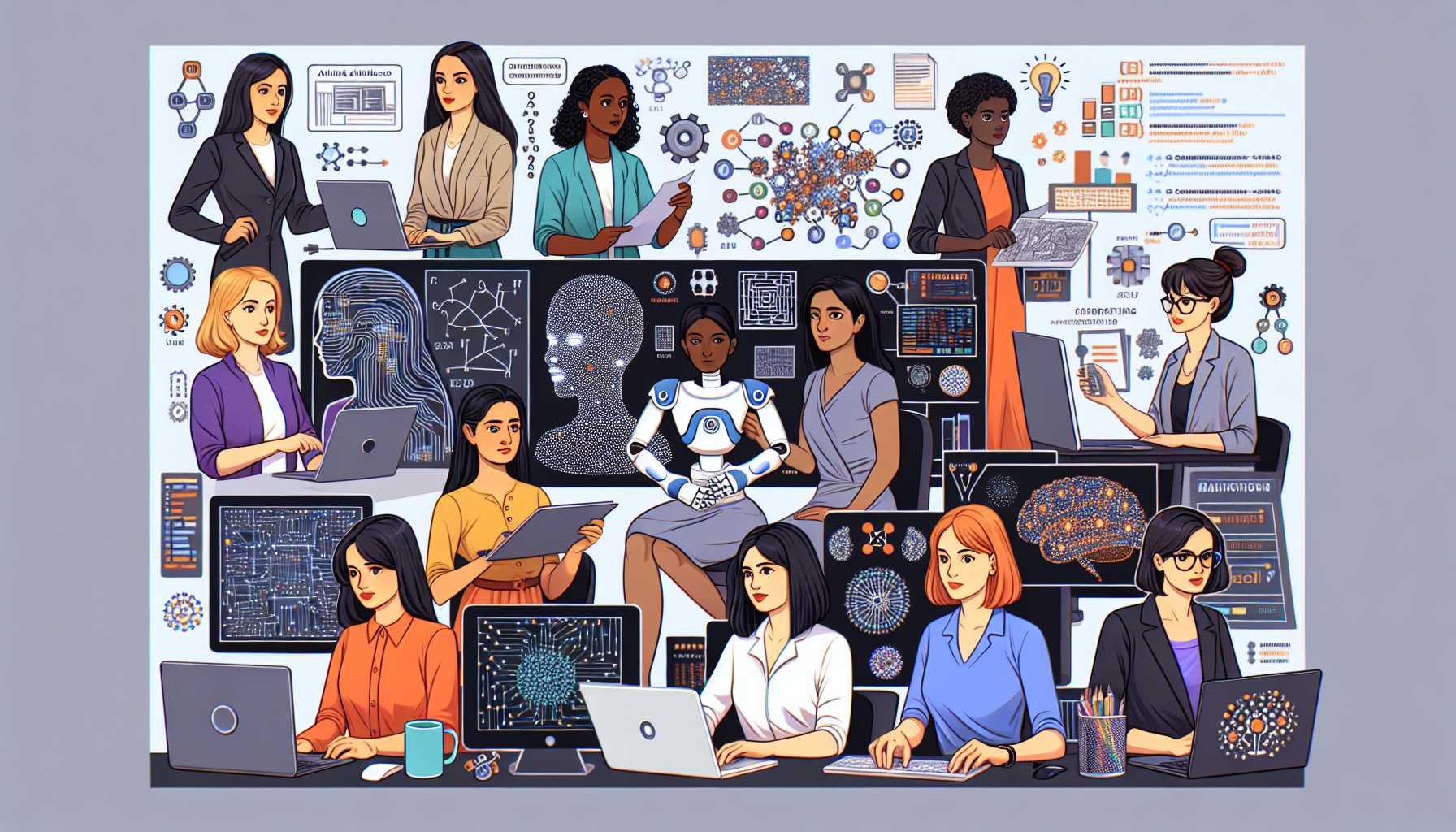Introduction
Welcome, tech aficionados and the code-curious brigade! Today’s digital dispatch takes us through a maze of copyright skirmishes to the very precipice of AI innovation, and all the ethical quandaries waiting there—with a jargon-busting intermission, naturally. So buckle up as we venture into the world of cloned word puzzles and the unsung heroines of the AI revolution. We promise, it’s not just another news toss in the tech salad; it’s a narrative seasoned with insights, opinions, and the discerning gaze of a tech investor and product manager.
The Clone Wars: Wordle’s Fam and the NYT’s Copyright Crusade
Once upon a time in the digital realm, a game soared to popularity with its mind-bending mix of vowels and consonants, capturing hearts and idle time worldwide. Its name was Wordle, and its simplicity and viral charm made it a juicy target for clone creators. Yet, when The New York Times took ownership, it kindled a veritable “Clone Wars” of the word game world, sending DMCA notices like photon torpedoes. GitHub, the bustling hub of collaborative code and a hothouse for Wordle-inspired creations, has witnessed takedowns like never before. Korean and Bosnian versions, much like far-off galaxies, were the first to fall. Then came Wirdle, the Shaetlan language’s sentinel, and Reactle, an open-source homage built with React and TypeScript, along with its 1,900 forks spreading across the developer universe. Chase Wackerfuss, the Reactle maestro, retracted his code creation to evade the legal laser guns of the Times. His predicament poses a question worth pondering: where does inspiration end and infringement begin in a world where digital creativity is as abundant as stars in the night sky?
Women in AI: Spotlighting the Brilliance Behind the Algorithms
Amidst the binary beats and pulsing pixels of AI-industry hardware, there’s an army of intellect and innovation often left in the shadows—women in AI. TechCrunch, wielding its media might, is spotlighting these thinkers who are reshaping our algorithmic world. Enter stage: Sandra Wachter, don of data ethics, whose voice reverberates through the halls of the Oxford Internet Institute. She’s not just dissecting the ethical carcass of AI—she’s championing a harmonious blend of human rights and tech progress. Her work, alongside esteemed allies, reveals that sometimes, in our pursuit of fairness, we make everyone equally worse off. A wake-up call if ever there was one, echoing in the minds of policymakers and plebeians alike. And in the realm of geopolitics, we shine a light on Sarah Kreps, a political scientist and former Air Force officer. Her studies into the murky waters of generative AI and political subterfuge are akin to peeling back the curtain on a future where democracy dances on the knife-edge of tech. The advice from these pioneering protagonists to aspiring AI Amazons? Find allies, sharpen skills, and be the architect of innovation, not the follower.
Generative AI: The Double-Edged Sword in Our Digital Future
Generative AI, the darling of the tech hype machine, is at a pivotal junction. A Bloomberg investigation laid bare a sobering truth: AI, much like the human creators behind it, can falter, displaying inclination towards certain racial profiles—echoing through the halls of human resource departments and casting a shadow on digital equity. But wait, there’s a silver lining. Insilico Medicine’s triumph is a testament to what generative AI can achieve when harnessed for the greater good. Turning a new leaf in the annals of biotechnology, Insilico’s generative palette conjured up a drug for idiopathic pulmonary fibrosis, traversing from AI-notion to clinical potion in record time. This landmark moment is nothing short of a standing ovation in the opera of drug discovery.
Visual Studio 2022: The Modern-Day Alchemist’s Crucible
Meanwhile, the Microsoft Visual Studio 2022 emerges as a crucible for coders—a melting pot where ideas transmute into digital gold. While I won’t delve into the commercial chants, the mere mention of this environment conjures up a tableau of innovation, collaboration, and problem-solving at its finest. A tool for the modern-day alchemist, indeed.
The Transparency Coalition: Holding a Mirror to AI’s Countenance
Lastly, as we navigate the ever-expanding universe of AI, groups like the Seattle-based Transparency Coalition rise to the challenge. Rob Eleveld and Jai Jaisimha stand at the helm, steering the discourse towards a future where the cloak of AI opacity is lifted, revealing the data that trains and molds these digital behemoths. They’re rallying for legislation and enlightenment—one that equips AI evangelists and laypeople to innovate responsibly.
Conclusion: Journeys Through Code and Consciousness
Our journey through the maelstroms of tech terrain—from code combat to the sanctums of scholarly contribution, past the shores of bias to the islands of innovation—leaves us with tantalizing thoughts. The tech tableau is ever-shifting, resonating with the beats of legal battles and the whispers of out-of-spotlight brilliance. As the cogs of AI grind on, it’s the collective thinkers, coders, and crusaders who remind us that progress isn’t merely a question of capability, but one of clarity and conscience. As the gavel falls on the Wordle clone debacle and the cheers rise for the women of AI, one thing’s for certain: in the code-rich tapestry of technology, every pixel counts and every line of code tells a story.







